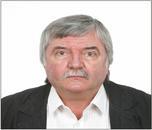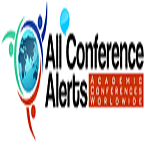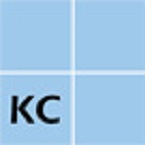Renowned Speakers

Radu Mutihac
University of Bucharest, Romania

Galina Mindlin
Director Mount Sinai School of Medicine USA

Sailaxmi Gandhi
NIMHANS India India

Buuma Maisha
Professor & Clinical Supervisor Saint Paul University Canada Canada

Prapapun Chucharoen
Mahidol University Thailand Thailand

Massimo Cocchi
Paolo Sotgiu Institute for Research Switzerland Switzerland

Stephanie Cacioppo
Assistant Professor USA

Sylvia Kwok Lai Yuk Ching
City University Hong Kong Hong Kong
Recommended Global Psychiatry Webinars & Conferences
Asia Pacific & Middle East
Child Psychology 2024
About Conference
Conference Series LLC LTD is glad to welcome Psychiatrists, psychologists, doctors, healthcare professionals, researchers and students to join us at the 35th International Conference on Adolescent Medicine and Child Psychology to be held during March 14-15, 2024 London, UK.
Child Psychology 2024 brings together researchers, eminent investigators, medical practitioners, scientist, professor, eminent speakers and other key people to discuss about the innovative research and to exchange ideas and experiences in the field of Child Psychology and Adolescent Medicine at an international platform. Organizing Committee also invites young researchers and students to have quick access to the knowledge shared by their peers that might advance their research hence help them to produce community-engaged research that improves the lives of children, adolescents, and families.
The theme of the conference is based on “Exploring the impact of technology on the mental health and well-being of children and adolescents”.
Advantages of Participating at our conference:
- As an add on advantage the Speaker & Abstract pages created in Google on your profile under your name would get worldwide visibility.
- Our robust online publicity attracts 20000+ users and 60000+ views to our Library of Abstracts which brings worldwide exposure to the researchers and speakers participate in our conferences.
- All the conference participants will have an unique opportunity to participate at One on One Meeting with Eminent Speakers.
- A Unique opportunity to hear what the global researchers are talking about at our Keynote sessions by world’s most eminent researchers in the field of Adolescent Medicine & Child Psychology.
- Top Industries Representation of Industrial Leaders, where you get a great opportunity to meet and discuss with the Industrial Leaders in person.
- Thought provoking Symposia’s
- Workshops on Carrier Development
- Preconference workshops in all major countries
- Nominations for Best Poster Award
- Outstanding Young Researcher Award
- Group Registration benefits
Benefits of Participation | Speaker
- Explore the best in Cutting edge Research
- Worldwide acknowledgment of Researcher’s profile
- Obtain professional development credits
- Your presence and talk will be recorded and hosted on YouTube and Vimeo which in turn will gain potential value to your research profile.
- Make Lasting connections at Networking and Social Events
- We provide unique convergence of Networking, Learning and Fun into a single package
- An opportunity to give One page advertisement in abstract book and flyers distribution which eventually gets 1 Million views and add great value to your research profile.
- Learn beyond your field of interest, a change to know more about the new topics and research apart from your core subject.
Benefit of Participation | Sponsor
- Worlds No1 Platform to show case Psychiatry & Psychology Products.
- Exposure to the international atmosphere will increase the odds of getting new business.
- Opportunity to showcase the new technology, new products of your company, and/or the service your industry to a broad international audience.
- Attain with an exceptional format in showcasing the products and services and to gain the potential clients for the future business prospects.
- Our Psychiatry & Psychology Conference in the One and only location to reach the top customers.
- Make new connections and fostering potential partnerships.
- Increase your business by lead generation through our conference participants.
- Build and successful business takes a lot of time, effort and drive, so it’s always good to have a network of colleagues and associates to draw energy from people who share a similar drive and objective.
- Flip side of learning new things is relearning classic techniques. Psychiatry & Psychology conferences create opportunities for greater focus and reflection that could help you take your business to the next level.
- Benchmarking key strategies for business and moving it forward.
- Get answers to your business questions and challenges from credible individuals at our conference.
- Exposure and Networking Opportunity with the various top decision makers of the respective organizations, will eventually grow your business in Global market.
- Get to know more about your competitors are first-hand, learn more about their businesses, and discover their strengths and weaknesses, all of which can add to your business’s competitive edge.
- Encounter new vendors and suppliers for your business.
- Real Benefits in New business - Many Organizations make deals and sign contracts at our Psychiatry & Psychology Conference.
- We offer you the Website visibility to more than 35K visitors in less than 6 months.
- Promotional logo of your organisation at our conference banner, website and other proceedings, branding and marketing material.
- Hosting session slots, poster awards, recognition in opening ceremony and complimentary registrations, exhibition/workshop booth, low-budget options.
Benefit of Association| for Collaborators
- No one in the world have this huge visitors towards Psychiatry & Psychology, these is the best platform to show case your society
- Create long-lasting relationships with the peers.
- Promotional content and Logo of your Association at our conference banner, website and other proceedings, branding and marketing material will increase your subscribers/Members number by 20 %.
- Our Website visibility to your Organization page can give a great impact for your association in the Global Market.
- Your representatives can network with key conference delegates to update their knowledge and understanding of your organization and services.
- Details will be added to the conference press release where the details will be shared to < 100000 outlets
- Details will be incorporated in all conference promotional materials which will be distributed to Hospitals, Universities, Society and Researchers
Benefits of Participation | Delegate
- Helps to meet Experts & Influencers Face to Face.
- Opportunities to meet researchers and experts of same field and share new ideas
- Can help to know New Tips & Tactics
- Professional Development – Elevate your knowledge and Skills
- Conference attendance inspires, rejuvenates, and energizes delegates
- Your participation at our conference will be helpful for a new approach and ideology that can be utilized for the extending the outcome of Companies or Industries.
- Enjoy the alluring city environment where the conference is being held.
- Raise your profile by being well-known
Target Audiences:
- Physiatrists (Physical Medicine & Rehabilitation Physicians)
- Psychiatrists
- Occupational Therapists
- Pediatricians
- Neurosurgeons
- Neurologists
- Cardiologists
- Psychologists
- Medical and Allied Healthcare Professionals
- Researchers
- Students
- Psychiatry Students, Scientists
- Psychiatry Researchers
- Psychiatry Faculty
- Medical Colleges
- Psychiatry Associations and Societies
- Business Entrepreneurs
- Training Institutes
- Manufacturing Medical Devices Companies
- Data Management Companies
Sessions/Tracks
Track 1: Child psychology
The term child health psychology refers to the field of research on the behavioral aspects of children's health and illness. At this time we need to continue the work of the child health psychology special interest group and to draw into the Division of Health Psychology a much larger number of developmental psychologists, who need to be informed about the relevance of their scientific training to child health issues. We call the Division's attention and that of granting agencies such as the National Institute of Child Health and Human Development to the following high-priority child health research issues: adherence to pediatric medical regimens; child health promotion; family influences on child and adolescent health and disease; and stress and coping in childhood illness.
- The Origins Of Intelligence In Children
- The Social Development of Children
- Intellectual Growth
Related Societies:
USA and Canada: American Board of Clinical Child and Adolescent Psychology (ABCCAP), Society of Clinical Child and Adolescent Psychology (SCCAP), American Academy of Child and Adolescent Psychiatry (AACAP), American Psychological Association (APA), Inter American Society of Psychology, International Society of Critical Health Psychology (ISCHP), American Psychiatric Association, American Psychiatric Nurses Association.
Europe: German Society for Child and Adolescent Psychiatry, Psychosomatics, and Psychotherapy (DGKJP), Association for Child and Adolescent Mental Health (ACAMH), European Association of Psychological Assessment, European Society for Child and Adolescent Psychiatry (ESCAP), European Federation of Psychologists Associations (EFPA), World Association for Infant Mental Health, European Health Psychology Society (EHPS), International Association of Individual Psychology.
Asia Pacific: Hong Kong Association of Doctors in Clinical Psychology (HKADCP), Indian Association for Child and Adolescent Mental Health (IACAM), Asian Society for Child and Adolescent Psychiatry and Allied Professions, Asian-South Pacific Association for Sport Psychology (ASPASP), Asian Psychological Association (APsyA), Hong Kong Psychological Society, International Council of Psychologists (ICP), International Organization of Psychophysiology (IOP), Philippine Psychiatric Association, Psychiatric Association of Thailand, Chinese Society of Psychiatry, Indonesian Psychiatric Association, Malaysian Psychiatric Association, Myanmar Medico-Psychological Society.
Track 2: Adolescent Psychology
Teenagers live in an exhilarating time of transition from childhood to adulthood. This time can be full of exciting discoveries as teens develop their unique personality traits and skills. On the other hand, there are also challenges that accompany the process of becoming an adult. Because teenagers differ fundamentally from children and adults, it’s important to understand them psychologically so you can support them better as they grow.
Adolescence is a time of great change for teens, not to mention everyone involved in their lives. It’s important for teenagers to develop an identity and independence. At the same time, they face growing pressure to be responsible and trustworthy while they grapple with new-to-them issues like sexuality, drug use, and peer relationships. Adolescent psychology seeks to understand teens and help them make the transition from child to adult
- Adolescent development
- Sexual development
- Emotions of adolescents
Related Societies:
USA and Canada: American Academy of Child and Adolescent Psychiatry (AACAP), American Society for Adolescent Psychiatry (ASAP), Society for Research in Child Development (SRCD), American Psychiatric Association, American Board of Clinical Child and Adolescent Psychology (ABCCAP), Society of Clinical Child and Adolescent Psychology (SCCAP), American Psychiatric Nurses Association, Canadian Psychological Association (CPA), Center for Psychiatric Rehabilitation, American Psychological Association (APA).
Europe: International Association for Child and Adolescent Psychiatry and Allied Professions (IACAPAP), World Association for Infant Mental Health, European Society for Child and Adolescent Psychiatry (ESCAP), Association for Child and Adolescent Mental Health (ACAMH), Psychological Society of Ireland, Russian Psychological Society, Turkish Psychological Association, European Community Psychology Association (ECPA), European Health Psychology Society (EHPS), European Federation of Psychologists Associations (EFPA), European Association of Psychological Assessment.
Asia Pacific: Asian Society for Child and Adolescent Psychiatry and Allied Professions, Chinese Society of Psychiatry, Hong Kong Psychological Society, Philippine Psychiatric Association, Psychiatric Association of Thailand, Indonesian Psychiatric Association, Malaysian Psychiatric Association, Indian Association for Child and Adolescent Mental Health (IACAM), International Council of Psychologists (ICP), Myanmar Medico-Psychological Society, Asian Psychological Association (APsyA), Asian-South Pacific Association for Sport Psychology (ASPASP), International Organization of Psychophysiology (IOP).
Track 3: Adolescent Health
Adolescence is the phase of life between childhood and adulthood, from ages 10 to 19. It is a unique stage of human development and an important time for laying the foundations of good health. Adolescents experience rapid physical, cognitive and psychosocial growth. This affects how they feel, think, make decisions, and interact with the world around them.
Despite being thought of as a healthy stage of life, there is significant death, illness and injury in the adolescent years. Much of this is preventable or treatable. During this phase, adolescents establish patterns of behaviour – for instance, related to diet, physical activity, substance use, and sexual activity – that can protect their health and the health of others around them, or put their health at risk now and safe and supportive environments.
- Puberty
- Body image
- Nutrition
- Mental heath
Related Societies:
USA and Canada: American Board of Clinical Child and Adolescent Psychology (ABCCAP), Society of Clinical Child and Adolescent Psychology (SCCAP), American Academy of Child and Adolescent Psychiatry (AACAP), American Psychological Association (APA), InterAmerican Society of Psychology, International Society of Critical Health Psychology (ISCHP), American Psychiatric Association, American Psychiatric Nurses Association.
Europe: German Society for Child and Adolescent Psychiatry, Psychosomatics, and Psychotherapy (DGKJP), Association for Child and Adolescent Mental Health (ACAMH), European Association of Psychological Assessment, European Society for Child and Adolescent Psychiatry (ESCAP), European Federation of Psychologists Associations (EFPA), World Association for Infant Mental Health, European Health Psychology Society (EHPS), International Association of Individual Psychology.
Asia Pacific: Hong Kong Association of Doctors in Clinical Psychology (HKADCP), Indian Association for Child and Adolescent Mental Health (IACAM), Asian Society for Child and Adolescent Psychiatry and Allied Professions, Asian-South Pacific Association for Sport Psychology (ASPASP), Asian Psychological Association (APsyA), Hong Kong Psychological Society, International Council of Psychologists (ICP), International Organization of Psychophysiology (IOP), Philippine Psychiatric Association, Psychiatric Association of Thailand, Chinese Society of Psychiatry, Indonesian Psychiatric Association, Malaysian Psychiatric Association, Myanmar Medico-Psychological Society.
Track 4: Neonatal Psychology
Neonatal underscore on the primary month after the introduction of tyke .It incorporates the experience of the person from pregnancy till the labor. Neonatology is a well-established sub-discipline of medicine, concerned with the medical care of the newborn; of particular importance are the at-risk newborn or premature infants. Neonatology is a hospital-based specialty usually practiced in Neonatal Intensive Care Units (NICU). Neonatology in the 1970s and 1980s was developing very rapidly and acquiring multidisciplinary connotations; this progress has shown the importance of bringing together the knowledge and experiences of the medical professions, health professionals, psychologists and parents to improve the quality of physical and psychological care of the newborn; this is particularly true for hospitalized preterm neonates.
Therefore, with the establishment of Health Psychology in 1994 the time was appropriate for me to redefine neonatal Psychology into Neonatal Health Psychology (NNHP). Still using the same theoretical framework but defined as "the scientific study of biopsychosocial and behavioural processes in health, illness, and health care of the preterm (and fullterm) neonate during his/her first 28 days of life, and the relationshipMeasuring and monitoring are essential to ascertain the Quality of Care being it medical or psychological.
- Genetics
- Chromosomal problem
- Temperature control problems
- Developmental delay
Related Societies:
USA and Canada: American Psychological Association (APA), American Academy of Child and Adolescent Psychiatry (AACAP), American Society for Adolescent Psychiatry (ASAP), Michigan Psychological Association (MPA), Mental Health America (MHA), National Institute of Mental Health (NIMH), Canadian Psychological Association (CPA), Mental Health Commission of Canada (MHCC), Canadian Mental Health Association (CMHA), InterAmerican Society of Psychology, International Family Therapy Association (IFTA), International Network of Integrative Mental Health (INIMH), American Board of Professional Psychology (ABPP), American Psychological Society (APS), International Society of Critical Health Psychology (ISCHP), World Federation for Mental Health (WFMH).
Europe: European Society for Child and Adolescent Psychiatry (ESCAP), European Federation of Psychologists Associations (EFPA), Association for Child and Adolescent Mental Health (ACAMH), European Association of Psychological Assessment, European Association of Psychology and Law (EAPL), European Community Psychology Association (ECPA), European Health Psychology Society (EHPS), European Society for Philosophy and Psychology, French Language Association of Scientific Psychology, International Association for Analytical Psychology, International Association of Individual Psychology, Association of State and Provincial Psychological Boards (ASPPB), World Association for Infant Mental Health.
Asia Pacific: Asian Psychological Association (APsyA), Asian-South Pacific Association for Sport Psychology (ASPASP), Indian Association for Child and Adolescent Mental Health (IACAM), International Council of Psychologists (ICP), International Organization of Psychophysiology (IOP), Asian Society for Child and Adolescent Psychiatry and Allied Professions, Indonesian Psychiatric Association, Malaysian Psychiatric Association, Myanmar Medico-Psychological Society, Philippine Psychiatric Association, Psychiatric Association of Thailand, Chinese Society of Psychiatry, Hong Kong Psychological Society.
Track 5: Educational Psychology
Educational psychology is the branch of psychology concerned with the scientific study of human learning. The study of learning processes, from both cognitive and behavioral perspectives, allows researchers to understand individual differences in intelligence, cognitive development, affect, motivation, self-regulation, and self-concept, as well as their role in learning. The field of educational psychology relies heavily on quantitative methods, including testing and measurement, to enhance educational activities related to instructional design, classroom management, and assessment, which serve to facilitate learning processes in various educational settings across the lifespan.
Educational psychology can in part be understood through its relationship with other disciplines. It is informed primarily by psychology, bearing a relationship to that discipline analogous to the relationship between medicine and biology. It is also informed by neuroscience. Educational psychology in turn informs a wide range of specialities within educational studies, including instructional design, educational technology, curriculum development, organizational learning, special education, classroom management, and student motivation.
- Role of Emotion in Learning
- Rural Education
- Cognitive Control Skills
- Development of Self-regulation
Related Societies:
USA and Canada: American Board of Clinical Child and Adolescent Psychology (ABCCAP), Society of Clinical Child and Adolescent Psychology (SCCAP), American Academy of Child and Adolescent Psychiatry (AACAP), American Psychological Association (APA), InterAmerican Society of Psychology, International Society of Critical Health Psychology (ISCHP), American Psychiatric Association, American Psychiatric Nurses Association.
Europe: German Society for Child and Adolescent Psychiatry, Psychosomatics, and Psychotherapy (DGKJP), Association for Child and Adolescent Mental Health (ACAMH), European Association of Psychological Assessment, European Society for Child and Adolescent Psychiatry (ESCAP), European Federation of Psychologists Associations (EFPA), World Association for Infant Mental Health, European Health Psychology Society (EHPS), International Association of Individual Psychology.
Asia Pacific: Hong Kong Association of Doctors in Clinical Psychology (HKADCP), Indian Association for Child and Adolescent Mental Health (IACAM), Asian Society for Child and Adolescent Psychiatry and Allied Professions, Asian-South Pacific Association for Sport Psychology (ASPASP), Asian Psychological Association (APsyA), Hong Kong Psychological Society, International Council of Psychologists (ICP), International Organization of Psychophysiology (IOP), Philippine Psychiatric Association, Psychiatric Association of Thailand, Chinese Society of Psychiatry, Indonesian Psychiatric Association, Malaysian Psychiatric Association, Myanmar Medico-Psychological Society.
Track 6: Positive Psychology
Positive psychology is the scientific study of what makes life most worth living, focusing on both individual and societal well-being. It studies "positive subjective experience, positive individual traits, and positive institutions...it aims to improve quality of life It is a field of study that has been growing steadily throughout the years as individuals and researchers look for common ground on better well-being.
Positive psychology focuses on Eudaimonia, an Ancient Greek term for "the good life" and the concept for reflection on the factors that contribute the most to a well-lived and fulfilling life. Positive psychologists often use the terms subjective well-being and happiness interchangeably.
- Happiness
- Optimism and helplessness
- Mindfulness
- Positive thinking
Related Societies:
USA and Canada: American Board of Clinical Child and Adolescent Psychology (ABCCAP), Society of Clinical Child and Adolescent Psychology (SCCAP), American Academy of Child and Adolescent Psychiatry (AACAP), American Psychological Association (APA), InterAmerican Society of Psychology, International Society of Critical Health Psychology (ISCHP), American Psychiatric Association, American Psychiatric Nurses Association.
Europe: German Society for Child and Adolescent Psychiatry, Psychosomatics, and Psychotherapy (DGKJP), Association for Child and Adolescent Mental Health (ACAMH), European Association of Psychological Assessment, European Society for Child and Adolescent Psychiatry (ESCAP), European Federation of Psychologists Associations (EFPA), World Association for Infant Mental Health, European Health Psychology Society (EHPS), International Association of Individual Psychology.
Asia Pacific: Hong Kong Association of Doctors in Clinical Psychology (HKADCP), Indian Association for Child and Adolescent Mental Health (IACAM), Asian Society for Child and Adolescent Psychiatry and Allied Professions, Asian-South Pacific Association for Sport Psychology (ASPASP), Asian Psychological Association (APsyA), Hong Kong Psychological Society, International Council of Psychologists (ICP), International Organization of Psychophysiology (IOP), Philippine Psychiatric Association, Psychiatric Association of Thailand, Chinese Society of Psychiatry, Indonesian Psychiatric Association, Malaysian Psychiatric Association, Myanmar Medico-Psychological Society.
Track 7: Early childhood Psychology
Early childhood is sometimes referred to as the preschool years. This is a period of the life span after infancy and before the child begins formal schooling. This is typically from ages 3 to 5 or 2 to 6 years.
At this age, many children will have their first formal learning experiences—including learning to socialize with others without a parent present. In some cases, parents may have to deal with a child’s aggression toward others, or with helping them deal with other children’s aggression toward them.
- Child Development Stages
- Attachment Theory
- Early Learning and Education
- Developmental Milestones
- Psychological Disorders in Early Childhood
- Socioeconomic and Cultural Influences
Related Societies:
USA and Canada: American Board of Clinical Child and Adolescent Psychology (ABCCAP), Society of Clinical Child and Adolescent Psychology (SCCAP), American Academy of Child and Adolescent Psychiatry (AACAP), American Psychological Association (APA), InterAmerican Society of Psychology, International Society of Critical Health Psychology (ISCHP), American Psychiatric Association, American Psychiatric Nurses Association.
Europe: German Society for Child and Adolescent Psychiatry, Psychosomatics, and Psychotherapy (DGKJP), Association for Child and Adolescent Mental Health (ACAMH), European Association of Psychological Assessment, European Society for Child and Adolescent Psychiatry (ESCAP), European Federation of Psychologists Associations (EFPA), World Association for Infant Mental Health, European Health Psychology Society (EHPS), International Association of Individual Psychology.
Asia Pacific: Hong Kong Association of Doctors in Clinical Psychology (HKADCP), Indian Association for Child and Adolescent Mental Health (IACAM), Asian Society for Child and Adolescent Psychiatry and Allied Professions, Asian-South Pacific Association for Sport Psychology (ASPASP), Asian Psychological Association (APsyA), Hong Kong Psychological Society, International Council of Psychologists (ICP), International Organization of Psychophysiology (IOP), Philippine Psychiatric Association, Psychiatric Association of Thailand, Chinese Society of Psychiatry, Indonesian Psychiatric Association, Malaysian Psychiatric Association, Myanmar Medico-Psychological Society.
Track 8: Developmental Psychology
Child development studies how children grow and change across different stages like infancy, toddlerhood, childhood, and adolescence. Child psychology is a specialized branch that studies cognitive and intellectual development and the applications of general psychological principles to infancy and childhood. Childhood psychology also looks at how the minds and behavior of children of the same age are different.
- Infancy
- Toddlers
- Early Childhood
- School-Age Children
- Adolescence
Related Societies:
USA and Canada: American Board of Clinical Child and Adolescent Psychology (ABCCAP), Society of Clinical Child and Adolescent Psychology (SCCAP), American Academy of Child and Adolescent Psychiatry (AACAP), American Psychological Association (APA), InterAmerican Society of Psychology, International Society of Critical Health Psychology (ISCHP), American Psychiatric Association, American Psychiatric Nurses Association.
Europe: German Society for Child and Adolescent Psychiatry, Psychosomatics, and Psychotherapy (DGKJP), Association for Child and Adolescent Mental Health (ACAMH), European Association of Psychological Assessment, European Society for Child and Adolescent Psychiatry (ESCAP), European Federation of Psychologists Associations (EFPA), World Association for Infant Mental Health, European Health Psychology Society (EHPS), International Association of Individual Psychology.
Asia Pacific: Hong Kong Association of Doctors in Clinical Psychology (HKADCP), Indian Association for Child and Adolescent Mental Health (IACAM), Asian Society for Child and Adolescent Psychiatry and Allied Professions, Asian-South Pacific Association for Sport Psychology (ASPASP), Asian Psychological Association (APsyA), Hong Kong Psychological Society, International Council of Psychologists (ICP), International Organization of Psychophysiology (IOP), Philippine Psychiatric Association, Psychiatric Association of Thailand, Chinese Society of Psychiatry, Indonesian Psychiatric Association, Malaysian Psychiatric Association, Myanmar Medico-Psychological Society.
Track 9: ADHD disorder
Attention-deficit/hyperactivity disorder (ADHD) is a chronic condition that affects millions of children and often continues into adulthood. ADHD includes a combination of persistent problems, such as difficulty sustaining attention, hyperactivity and impulsive behavior.
Children with ADHD may also struggle with low self-esteem, troubled relationships and poor performance in school. Symptoms sometimes lessen with age. However, some people never completely outgrow their ADHD symptoms. But they can learn strategies to be successful.
- Predominantly inattentive
- Predominantly hyperactive/impulsive
- Combined
- Related conditions in adults with ADHD
- Symptoms in adults
Related Societies:
USA and Canada: American Board of Clinical Child and Adolescent Psychology (ABCCAP), Society of Clinical Child and Adolescent Psychology (SCCAP), American Academy of Child and Adolescent Psychiatry (AACAP), American Psychological Association (APA), InterAmerican Society of Psychology, International Society of Critical Health Psychology (ISCHP), American Psychiatric Association, American Psychiatric Nurses Association.
Europe: German Society for Child and Adolescent Psychiatry, Psychosomatics, and Psychotherapy (DGKJP), Association for Child and Adolescent Mental Health (ACAMH), European Association of Psychological Assessment, European Society for Child and Adolescent Psychiatry (ESCAP), European Federation of Psychologists Associations (EFPA), World Association for Infant Mental Health, European Health Psychology Society (EHPS), International Association of Individual Psychology.
Asia Pacific: Hong Kong Association of Doctors in Clinical Psychology (HKADCP), Indian Association for Child and Adolescent Mental Health (IACAM), Asian Society for Child and Adolescent Psychiatry and Allied Professions, Asian-South Pacific Association for Sport Psychology (ASPASP), Asian Psychological Association (APsyA), Hong Kong Psychological Society, International Council of Psychologists (ICP), International Organization of Psychophysiology (IOP), Philippine Psychiatric Association, Psychiatric Association of Thailand, Chinese Society of Psychiatry, Indonesian Psychiatric Association, Malaysian Psychiatric Association, Myanmar Medico-Psychological Society.
Track 10: Cognitive development in children
Cognitive development means the growth of a child’s ability to think and reason. This growth happens differently from ages 6 to 12, and from ages 12 to 18. Children ages 6 to 12 years old develop the ability to think in concrete ways. These are called concrete operations. Ages 12 to 18 is called adolescence. Kids and teens in this age group do more complex thinking. This type of thinking is also known as formal logical operations.
- Do abstract thinking
- Reason from known principles
- Consider many points of view.
- Think about the process of thinking
Related Societies:
USA and Canada: American Board of Clinical Child and Adolescent Psychology (ABCCAP), Society of Clinical Child and Adolescent Psychology (SCCAP), American Academy of Child and Adolescent Psychiatry (AACAP), American Psychological Association (APA), InterAmerican Society of Psychology, International Society of Critical Health Psychology (ISCHP), American Psychiatric Association, American Psychiatric Nurses Association.
Europe: German Society for Child and Adolescent Psychiatry, Psychosomatics, and Psychotherapy (DGKJP), Association for Child and Adolescent Mental Health (ACAMH), European Association of Psychological Assessment, European Society for Child and Adolescent Psychiatry (ESCAP), European Federation of Psychologists Associations (EFPA), World Association for Infant Mental Health, European Health Psychology Society (EHPS), International Association of Individual Psychology.
Asia Pacific: Hong Kong Association of Doctors in Clinical Psychology (HKADCP), Indian Association for Child and Adolescent Mental Health (IACAM), Asian Society for Child and Adolescent Psychiatry and Allied Professions, Asian-South Pacific Association for Sport Psychology (ASPASP), Asian Psychological Association (APsyA), Hong Kong Psychological Society, International Council of Psychologists (ICP), International Organization of Psychophysiology (IOP), Philippine Psychiatric Association, Psychiatric Association of Thailand, Chinese Society of Psychiatry, Indonesian Psychiatric Association, Malaysian Psychiatric Association, Myanmar Medico-Psychological Society.
Track 11: Social and emotional development
Children grow and develop rapidly in their first five years across the four main areas of development. These areas are motor (physical), communication and language, cognitive, and social and emotional. Social and emotional development means how children start to understand who they are, what they are feeling and what to expect when interacting with others.
- The Ability to Cope with Stress
- The Ability to Manage Emotions
- School-Age Children and Social-Emotional Development
- Social-Emotional Milestones
Related Societies:
USA and Canada: American Board of Clinical Child and Adolescent Psychology (ABCCAP), Society of Clinical Child and Adolescent Psychology (SCCAP), American Academy of Child and Adolescent Psychiatry (AACAP), American Psychological Association (APA), InterAmerican Society of Psychology, International Society of Critical Health Psychology (ISCHP), American Psychiatric Association, American Psychiatric Nurses Association.
Europe: German Society for Child and Adolescent Psychiatry, Psychosomatics, and Psychotherapy (DGKJP), Association for Child and Adolescent Mental Health (ACAMH), European Association of Psychological Assessment, European Society for Child and Adolescent Psychiatry (ESCAP), European Federation of Psychologists Associations (EFPA), World Association for Infant Mental Health, European Health Psychology Society (EHPS), International Association of Individual Psychology.
Asia Pacific: Hong Kong Association of Doctors in Clinical Psychology (HKADCP), Indian Association for Child and Adolescent Mental Health (IACAM), Asian Society for Child and Adolescent Psychiatry and Allied Professions, Asian-South Pacific Association for Sport Psychology (ASPASP), Asian Psychological Association (APsyA), Hong Kong Psychological Society, International Council of Psychologists (ICP), International Organization of Psychophysiology (IOP), Philippine Psychiatric Association, Psychiatric Association of Thailand, Chinese Society of Psychiatry, Indonesian Psychiatric Association, Malaysian Psychiatric Association, Myanmar Medico-Psychological Society
Track 12: Impact of COVID-19 on child education
The COVID-19 pandemic brought a complex array of challenges which had mental health repercussions for everyone, including children and adolescents. Grief, fear, uncertainty, social isolation, increased screen time, and parental fatigue have negatively affected the mental health of children. Several studies showed higher rates of psychological distress, anxiety, depression, and posttraumatic stress in the general population across many countries.
- Disruption of Routine
- Social Isolation
- Increased Anxiety
- Learning Loss
- Inequities
Related Societies:
USA and Canada: American Board of Clinical Child and Adolescent Psychology (ABCCAP), Society of Clinical Child and Adolescent Psychology (SCCAP), American Academy of Child and Adolescent Psychiatry (AACAP), American Psychological Association (APA), InterAmerican Society of Psychology, International Society of Critical Health Psychology (ISCHP), American Psychiatric Association, American Psychiatric Nurses Association.
Europe: German Society for Child and Adolescent Psychiatry, Psychosomatics, and Psychotherapy (DGKJP), Association for Child and Adolescent Mental Health (ACAMH), European Association of Psychological Assessment, European Society for Child and Adolescent Psychiatry (ESCAP), European Federation of Psychologists Associations (EFPA), World Association for Infant Mental Health, European Health Psychology Society (EHPS), International Association of Individual Psychology.
Asia Pacific: Hong Kong Association of Doctors in Clinical Psychology (HKADCP), Indian Association for Child and Adolescent Mental Health (IACAM), Asian Society for Child and Adolescent Psychiatry and Allied Professions, Asian-South Pacific Association for Sport Psychology (ASPASP), Asian Psychological Association (APsyA), Hong Kong Psychological Society, International Council of Psychologists (ICP), International Organization of Psychophysiology (IOP), Philippine Psychiatric Association, Psychiatric Association of Thailand, Chinese Society of Psychiatry, Indonesian Psychiatric Association, Malaysian Psychiatric Association, Myanmar Medico-Psychological Society
Track 13: Building Teen Resilience
All youth face difficulties, which can range from traumatic losses to everyday disappointments. The ability to cope and recover (or “bounce back”) after a setback is important to their success. Experts call this “resilience,” and it’s a skill that can be learned.
- Model a positive outlook
- Build confidence
- Build connections
- Encourage goal-setting
- See challenges as learning opportunities
- Teach self-care
Related Societies:
USA and Canada: American Board of Clinical Child and Adolescent Psychology (ABCCAP), Society of Clinical Child and Adolescent Psychology (SCCAP), American Academy of Child and Adolescent Psychiatry (AACAP), American Psychological Association (APA), InterAmerican Society of Psychology, International Society of Critical Health Psychology (ISCHP), American Psychiatric Association, American Psychiatric Nurses Association.
Europe: German Society for Child and Adolescent Psychiatry, Psychosomatics, and Psychotherapy (DGKJP), Association for Child and Adolescent Mental Health (ACAMH), European Association of Psychological Assessment, European Society for Child and Adolescent Psychiatry (ESCAP), European Federation of Psychologists Associations (EFPA), World Association for Infant Mental Health, European Health Psychology Society (EHPS), International Association of Individual Psychology.
Asia Pacific: Hong Kong Association of Doctors in Clinical Psychology (HKADCP), Indian Association for Child and Adolescent Mental Health (IACAM), Asian Society for Child and Adolescent Psychiatry and Allied Professions, Asian-South Pacific Association for Sport Psychology (ASPASP), Asian Psychological Association (APsyA), Hong Kong Psychological Society, International Council of Psychologists (ICP), International Organization of Psychophysiology (IOP), Philippine Psychiatric Association, Psychiatric Association of Thailand, Chinese Society of Psychiatry, Indonesian Psychiatric Association, Malaysian Psychiatric Association, Myanmar Medico-Psychological Society
Track 14: Eating Disorders
Eating disorders in children and teens cause serious changes in eating habits it is a mental disorder defined by abnormal eating habits that negatively affect a person's physical and/or mental health. Eating disorders are actually serious and often fatal illnesses that are associated with severe disturbances in people’s eating behaviors and related thoughts and emotions. Preoccupation with food, body weight, and shape may also signal an eating disorder.
- Anorexia nervosa
- Bulimia nervosa
- Binge-eating disorder
Related Societies:
USA and Canada: American Board of Clinical Child and Adolescent Psychology (ABCCAP), Society of Clinical Child and Adolescent Psychology (SCCAP), American Academy of Child and Adolescent Psychiatry (AACAP), American Psychological Association (APA), InterAmerican Society of Psychology, International Society of Critical Health Psychology (ISCHP), American Psychiatric Association, American Psychiatric Nurses Association.
Europe: German Society for Child and Adolescent Psychiatry, Psychosomatics, and Psychotherapy (DGKJP), Association for Child and Adolescent Mental Health (ACAMH), European Association of Psychological Assessment, European Society for Child and Adolescent Psychiatry (ESCAP), European Federation of Psychologists Associations (EFPA), World Association for Infant Mental Health, European Health Psychology Society (EHPS), International Association of Individual Psychology.
Asia Pacific: Hong Kong Association of Doctors in Clinical Psychology (HKADCP), Indian Association for Child and Adolescent Mental Health (IACAM), Asian Society for Child and Adolescent Psychiatry and Allied Professions, Asian-South Pacific Association for Sport Psychology (ASPASP), Asian Psychological Association (APsyA), Hong Kong Psychological Society, International Council of Psychologists (ICP), International Organization of Psychophysiology (IOP), Philippine Psychiatric Association, Psychiatric Association of Thailand, Chinese Society of Psychiatry, Indonesian Psychiatric Association, Malaysian Psychiatric Association, Myanmar Medico-Psychological Society
Track 15: Child and Adolescent Counselling
Child counselling helps children to cope better with their emotions, understand problems and make positive choices and poor performance in studies. Our friendly counsellors encourage your child to express their feelings through one of different means like talking, artwork, telling stories, drama, play etc...
Benefits of counselling
- Ability to cooperate more effectively with problems
- Solutions to all study related problems
- Emotional attachment breaking from the partner in love failure problems
- Effective recovery in case of Sexual abuse
- Escape from suicidal thoughts
- Relief from anxiety, stress
- Developing Positive thinking towards life
- Your child starts to love the life
- Adolescent Issues
- Cognitive Changes
- Psychological Changes
- Social Changes
- Influence of Peer Pressure
Related Societies:
USA and Canada: American Board of Clinical Child and Adolescent Psychology (ABCCAP), Society of Clinical Child and Adolescent Psychology (SCCAP), American Academy of Child and Adolescent Psychiatry (AACAP), American Psychological Association (APA), InterAmerican Society of Psychology, International Society of Critical Health Psychology (ISCHP), American Psychiatric Association, American Psychiatric Nurses Association.
Europe: German Society for Child and Adolescent Psychiatry, Psychosomatics, and Psychotherapy (DGKJP), Association for Child and Adolescent Mental Health (ACAMH), European Association of Psychological Assessment, European Society for Child and Adolescent Psychiatry (ESCAP), European Federation of Psychologists Associations (EFPA), World Association for Infant Mental Health, European Health Psychology Society (EHPS), International Association of Individual Psychology.
Asia Pacific: Hong Kong Association of Doctors in Clinical Psychology (HKADCP), Indian Association for Child and Adolescent Mental Health (IACAM), Asian Society for Child and Adolescent Psychiatry and Allied Professions, Asian-South Pacific Association for Sport Psychology (ASPASP), Asian Psychological Association (APsyA), Hong Kong Psychological Society, International Council of Psychologists (ICP), International Organization of Psychophysiology (IOP), Philippine Psychiatric Association, Psychiatric Association of Thailand, Chinese Society of Psychiatry, Indonesian Psychiatric Association, Malaysian Psychiatric Association, Myanmar Medico-Psychological Society.
Track 16: Psychopharmacology
Psychopharmacology is the scientific study of the effects drugs have on mood, sensation, thinking, and behavior. It is distinguished from neuropsychopharmacology, which emphasizes the correlation between drug-induced changes in the functioning of cells in the nervous system and changes in the conscious and behavior.
In psychopharmacology, researchers are interested in any substance that crosses the blood–brain barrier and thus has an effect on behavior, mood or cognition. Drugs are researched for their physiochemical properties, physical side effects, and psychological side effects. Researchers in psychopharmacology study a variety of different psychoactive substances that include alcohol, cannabinoids, club drugs, psychedelics, opiates, nicotine, caffeine, psychomotor stimulants, inhalants, and anabolic-androgenic steroids. They also study drugs used in the treatment of affective and anxiety disorders, as well as schizophrenia.
- Psychopathology
- Antipsychotic
- Dementia Praecox
- Psychotherapy
Related Societies:
USA and Canada: American Board of Clinical Child and Adolescent Psychology (ABCCAP), Society of Clinical Child and Adolescent Psychology (SCCAP), American Academy of Child and Adolescent Psychiatry (AACAP), American Psychological Association (APA), InterAmerican Society of Psychology, International Society of Critical Health Psychology (ISCHP), American Psychiatric Association, American Psychiatric Nurses Association.
Europe: German Society for Child and Adolescent Psychiatry, Psychosomatics, and Psychotherapy (DGKJP), Association for Child and Adolescent Mental Health (ACAMH), European Association of Psychological Assessment, European Society for Child and Adolescent Psychiatry (ESCAP), European Federation of Psychologists Associations (EFPA), World Association for Infant Mental Health, European Health Psychology Society (EHPS), International Association of Individual Psychology.
Asia Pacific: Hong Kong Association of Doctors in Clinical Psychology (HKADCP), Indian Association for Child and Adolescent Mental Health (IACAM), Asian Society for Child and Adolescent Psychiatry and Allied Professions, Asian-South Pacific Association for Sport Psychology (ASPASP), Asian Psychological Association (APsyA), Hong Kong Psychological Society, International Council of Psychologists (ICP), International Organization of Psychophysiology (IOP), Philippine Psychiatric Association, Psychiatric Association of Thailand, Chinese Society of Psychiatry, Indonesian Psychiatric Association, Malaysian Psychiatric Association, Myanmar Medico-Psychological Society.
Track 17: Autism Spectrum Disorder
Autism spectrum disorder (ASD) is a developmental disability caused by differences in the brain. Some people with ASD have a known difference, such as a genetic condition. Other causes are not yet known. Scientists believe there are multiple causes of ASD that act together to change the most common ways people develop. We still have much to learn about these causes and how they impact people with ASD.
People with ASD may behave, communicate, interact, and learn in ways that are different from most other people. There is often nothing about how they look that sets them apart from other people. The abilities of people with ASD can vary significantly. For example, some people with ASD may have advanced conversation skills whereas others may be nonverbal. Some people with ASD need a lot of help in their daily lives; others can work and live with little to no support.
ASD begins before the age of 3 years and can last throughout a person’s life, although symptoms may improve over time. Some children show ASD symptoms within the first 12 months of life. In others, symptoms may not show up until 24 months of age or later. Some children with ASD gain new skills and meet developmental milestones until around 18 to 24 months of age, and then they stop gaining new skills or lose the skills they once had.
- Asperger Syndrome
- Pervasive Developmental Disorder
- Autistic Disorder
Related Societies:
USA and Canada: American Board of Clinical Child and Adolescent Psychology (ABCCAP), Society of Clinical Child and Adolescent Psychology (SCCAP), American Academy of Child and Adolescent Psychiatry (AACAP), American Psychological Association (APA), InterAmerican Society of Psychology, International Society of Critical Health Psychology (ISCHP), American Psychiatric Association, American Psychiatric Nurses Association.
Europe: German Society for Child and Adolescent Psychiatry, Psychosomatics, and Psychotherapy (DGKJP), Association for Child and Adolescent Mental Health (ACAMH), European Association of Psychological Assessment, European Society for Child and Adolescent Psychiatry (ESCAP), European Federation of Psychologists Associations (EFPA), World Association for Infant Mental Health, European Health Psychology Society (EHPS), International Association of Individual Psychology.
Asia Pacific: Hong Kong Association of Doctors in Clinical Psychology (HKADCP), Indian Association for Child and Adolescent Mental Health (IACAM), Asian Society for Child and Adolescent Psychiatry and Allied Professions, Asian-South Pacific Association for Sport Psychology (ASPASP), Asian Psychological Association (APsyA), Hong Kong Psychological Society, International Council of Psychologists (ICP), International Organization of Psychophysiology (IOP), Philippine Psychiatric Association, Psychiatric Association of Thailand, Chinese Society of Psychiatry, Indonesian Psychiatric Association, Malaysian Psychiatric Association, Myanmar Medico-Psychological Society.
Track 18: Psychological Disorders
The term psychological disorders are sometimes used to refer to what are more frequently known as mental disorders or psychiatric disorders. Mental disorders are patterns of behavioral or psychological symptoms that impact multiple areas of life. These disorders create distress for the person experiencing the symptoms.
In 2019, common mental disorders around the globe include depression, which affects about 264 million, bipolar disorder, which affects about 45 million, dementia, which affects about 50 million, and schizophrenia and other psychoses, which affects about 20 million people.] Neurodevelopmental disorders include intellectual disability and autism spectrum disorders which usually arise in infancy or childhood. Stigma and discrimination can add to the suffering and disability associated with mental disorders, leading to various social movements attempting to increase understanding and challenge social exclusion
- Anxiety
- Depression
- Oppositional Defiant Disorder (ODD)
- Conduct Disorder (CD)
- Attention-Deficit/Hyperactivity Disorder (ADHD
Related Societies:
USA and Canada: American Board of Clinical Child and Adolescent Psychology (ABCCAP), Society of Clinical Child and Adolescent Psychology (SCCAP), American Academy of Child and Adolescent Psychiatry (AACAP), American Psychological Association (APA), InterAmerican Society of Psychology, International Society of Critical Health Psychology (ISCHP), American Psychiatric Association, American Psychiatric Nurses Association.
Europe: German Society for Child and Adolescent Psychiatry, Psychosomatics, and Psychotherapy (DGKJP), Association for Child and Adolescent Mental Health (ACAMH), European Association of Psychological Assessment, European Society for Child and Adolescent Psychiatry (ESCAP), European Federation of Psychologists Associations (EFPA), World Association for Infant Mental Health, European Health Psychology Society (EHPS), International Association of Individual Psychology.
Asia Pacific: Hong Kong Association of Doctors in Clinical Psychology (HKADCP), Indian Association for Child and Adolescent Mental Health (IACAM), Asian Society for Child and Adolescent Psychiatry and Allied Professions, Asian-South Pacific Association for Sport Psychology (ASPASP), Asian Psychological Association (APsyA), Hong Kong Psychological Society, International Council of Psychologists (ICP), International Organization of Psychophysiology (IOP), Philippine Psychiatric Association, Psychiatric Association of Thailand, Chinese Society of Psychiatry, Indonesian Psychiatric Association, Malaysian Psychiatric Association, Myanmar Medico-Psychological Society.
Track 19: Clinical Child and Adolescent Psychology
Clinical child and adolescent psychology is a specialty in professional psychology that develops and applies scientific knowledge to the delivery of psychological services to infants, toddlers, children, and adolescents within their social context. Specialized knowledge of particular importance to the specialty of clinical child and adolescent psychology is an understanding of the basic psychological needs of children and adolescents, and how the family and other social contexts influence the socio-emotional adjustment, developmental processes, mental and behavioral disorders and developmental psychopathology, behavioral adaptation, and health status of children and adolescents.
- Child mental health
- Adult mental health
- Learning disabilities
- Emotional disturbances
- Health psychology
Related Societies:
USA and Canada: American Board of Clinical Child and Adolescent Psychology (ABCCAP), Society of Clinical Child and Adolescent Psychology (SCCAP), American Academy of Child and Adolescent Psychiatry (AACAP), American Psychological Association (APA), InterAmerican Society of Psychology, International Society of Critical Health Psychology (ISCHP), American Psychiatric Association, American Psychiatric Nurses Association.
Europe: German Society for Child and Adolescent Psychiatry, Psychosomatics, and Psychotherapy (DGKJP), Association for Child and Adolescent Mental Health (ACAMH), European Association of Psychological Assessment, European Society for Child and Adolescent Psychiatry (ESCAP), European Federation of Psychologists Associations (EFPA), World Association for Infant Mental Health, European Health Psychology Society (EHPS), International Association of Individual Psychology.
Asia Pacific: Hong Kong Association of Doctors in Clinical Psychology (HKADCP), Indian Association for Child and Adolescent Mental Health (IACAM), Asian Society for Child and Adolescent Psychiatry and Allied Professions, Asian-South Pacific Association for Sport Psychology (ASPASP), Asian Psychological Association (APsyA), Hong Kong Psychological Society, International Council of Psychologists (ICP), International Organization of Psychophysiology (IOP), Philippine Psychiatric Association, Psychiatric Association of Thailand, Chinese Society of Psychiatry, Indonesian Psychiatric Association, Malaysian Psychiatric Association, Myanmar Medico-Psychological Society.
Track 20: Psychopathology and Psychotherapy
Emotional wellness issues are normal and influence the life expectancy of every single person. These issues incorporate mental issue identified with nervousness, temperament, eating, psychosis, substance use, and character, just as every single mental issue. The passing rate have expanded to 20% and accordingly to decrease the no of death rates here the focal point of research incorporate Child Psychopathology Manifestation of mental issue, Oppositional inadequate issue, Disruptive conduct issue, Pervasive formative issue, How to do Early Intervention and avoidance, what can be the Therapeutic methodologies towards counteractive action.
- Mental illness
- Biological factors, including genes and brain chemistry
- Psychodynamic
- Cognitive behavioral therapy(CBT)
Track 21: Psychiatric and Mental Health Nursing
Mental psychological well-being nursing is a sub division of nursing. These people for the most part work with people, families, gatherings and networks giving them help to better their psychological wellness conditions. They fundamentally work by setting up a nursing finding and likewise plan for consideration and in conclusion assesses for viability. They treat patients with mental issue or the possibility to grow so utilizing their remedial abilities and may likewise apply psychotherapy.
- Neuroscience critical/intensive care
- Long-term neurological conditions
- Classes of mental illness/types of disorder
- Prevention of mental illness
Related Societies:
USA and Canada: Society for Adolescent Health and Medicine (SAHM), American Board of Clinical Child and Adolescent Psychology (ABCCAP), American Society for Adolescent Psychiatry (ASAP), Society of Clinical Child and Adolescent Psychology (SCCAP), Society for Research on Adolescence (SRA), Society for Research in Child Development (SRCD), American Academy of Child and Adolescent Psychiatry (AACAP), Society for Latin American Psychology Students, Houston Psychological Association, InterAmerican Society of Psychology
Europe: International Society for Adolescent Psychiatry and Psychology (ISAPP), International Association for Child and Adolescent Psychiatry and Allied Professions (IACAPAP), German Psychological Association, Swedish Psychological Society, European Society for Child and Adolescent Psychiatry (ESCAP), European Federation of Psychologists Associations (EFPA), Association for Child and Adolescent Mental Health (ACAMH), European Association of Psychological Assessment, European Community Psychology Association (ECPA), European Health Psychology Society (EHPS), International Association of Individual Psychology
Asia Pacific: Asian Society for Child and Adolescent Psychiatry and Allied Professions, Institute of Professional Psychologists, Indonesian Psychiatric Association, Malaysian Psychiatric Association, Myanmar Medico-Psychological Society, Philippine Psychiatric Association, Psychiatric Association of Thailand, Chinese Society of Psychiatry, Hong Kong Psychological Society, Asian Psychological Association (APsyA), Asian-South Pacific Association for Sport Psychology (ASPASP), Indian Association for Child and Adolescent Mental Health (IACAM), International Council of Psychologists (ICP), International Organization of Psychophysiology (IOP)
Track 22: Anger Management for Children
Children at all ages are going to experience anger management problems. , as they are going through transitional stages of development, this can be a very difficult time for them. They are trying to evolve, either by themselves, or as a result of social they are receiving from their peers. They have a much larger sense of self, and as a result of that, they are going to try to force their own agendas. Dealing with children that are experiencing anger management issues such as tantrums can be very trying for adults. Whether this is happening at home, or if children are doing this at school, strategies must be implemented in order to redirect their anger or help them understand why what they are doing is wrong from a perspective other than their own.
- Think before you act
- Set limits
- Calm down
- Stop
Related Societies:
USA and Canada: American Board of Clinical Child and Adolescent Psychology (ABCCAP), Society of Clinical Child and Adolescent Psychology (SCCAP), American Academy of Child and Adolescent Psychiatry (AACAP), American Psychological Association (APA), InterAmerican Society of Psychology, International Society of Critical Health Psychology (ISCHP), American Psychiatric Association, American Psychiatric Nurses Association.
Europe: German Society for Child and Adolescent Psychiatry, Psychosomatics, and Psychotherapy (DGKJP), Association for Child and Adolescent Mental Health (ACAMH), European Association of Psychological Assessment, European Society for Child and Adolescent Psychiatry (ESCAP), European Federation of Psychologists Associations (EFPA), World Association for Infant Mental Health, European Health Psychology Society (EHPS), International Association of Individual Psychology.
Asia Pacific: Hong Kong Association of Doctors in Clinical Psychology (HKADCP), Indian Association for Child and Adolescent Mental Health (IACAM), Asian Society for Child and Adolescent Psychiatry and Allied Professions, Asian-South Pacific Association for Sport Psychology (ASPASP), Asian Psychological Association (APsyA), Hong Kong Psychological Society, International Council of Psychologists (ICP), International Organization of Psychophysiology (IOP), Philippine Psychiatric Association, Psychiatric Association of Thailand, Chinese Society of Psychiatry, Indonesian Psychiatric Association, Malaysian Psychiatric Association, Myanmar Medico-Psychological Society.
Market Analysis
We once again welcome you to 35th International Conference on Adolescent Medicine & Child Psychology scheduled during March 14-15, 2024 at London, UK. The theme of the conference is based on.
The organizing committee is gearing up for an exciting and informative conference program including plenary lectures, symposia, workshops on a variety of topics, poster presentations and various programs for participants from all over the world. Our conference will provide you with exciting opportunities and international platform for hands-on learning and networking with colleagues and communication with industry partners.
Market Research
According to WHO worldwide 10-20% of children and adolescents experience mental disorders. The average age for initiation of maximum psychiatric disorders is between 14 to 20 year. Children with mental disorders face major challenges like stigma, isolation and discrimination, as well as lack of access to health care and education facilities.
An adult do have the capability to identify, understand and seek help for a problem, whereas a child may be confused and upset by what they are feeling and hence they are more vulnerable towards developing a mental disorder. Recently with the help of many organisations who have devoted their work to spread awareness regarding this mental distress children have got some exposure towards these treatments. These organisations help young people to receive the support they need to progress into young adults.
It came to notice that the top concern for young people was family relationships, including conflict in the family and parents’ divorce or separation. Over 12 months, there were over 38,000 counselling sessions for this concern.
Some of the concerns that had affected children and young people included:
Main concerns Number of counselling sessions
Low self-esteem, feeling sad, low or lonely 35,244
Abuse, including sexual, online, physical, emotional and neglect 29,126
Bullying, face-to-face or online 25,736
Self-harm 19,557
There is also concern about the occupancy levels at mental health inpatient facilities. During 2019-2023 the Care Quality Commission found that 16% of wards visited by their officers were over capacity and half of the wards were nearly full with 90% occupancy. It has been observed that only 65% of the people with psychiatric disorders actually receive the treatment.
With the rising number mental health patients the financial strain on services has also expanded and now its estimated global cost is £1.6 trillion greater than cancer, diabetes, chronic respiratory disease and heart disease on their own.
Mental health services in the UK are overstretched, but still investment in mental health prevention is limited. Currently mental health research is only receiving 5.5% of the total UK health research spending (equating to £115 million) for vulnerable people in UK society.
WHO has adopted a comprehensive mental health action plan 2015-2023 during the 66th World Health Assembly.
The four major objectives of the action plan include:
· To build up effective leadership and governance for mental health.
· To make responsive mental health and social care services accessible in community-based settings.
· To implement strategies for promotion and prevention in mental health.
· To empower information systems, evidence and research regarding mental health.
Each of the four objectives is accompanied by one or two specific targets, which provide the basis for measurable collective action and achievement by Member States towards global goals.
Past Conference
Child Psychology 2023
34th International Conference on Adolescent Medicine and Child Psychology organized during March 20-21, 2023 Webinar. With the support and contribution of the Organizing Committee Members, we successfully hosted the event at the conference venue.
Firstly we must thank you for trusting us and participating at Child Psychology 2023, a global platform to discuss various important aspects of Psychology.
There are infinite reasons to extend our gratitude to you for making the Child Psychology 2023 outstanding conference. We couldn't have done it without your continuous support and believe towards our organization, which mutually made to achieve Child Psychology 2023 new heights in the field of Psychology and Psychiatry.
The conference was marked by the attendance of young and brilliant researchers, business delegates and talented student communities representing more than 10 countries, who have driven this event into the path of success.
The conference was organized around the theme “Approachs towards Child and Adolescent Developmental Psychology”. The event implanted a firm relation of upcoming strategies in the field of psychology with the scientific community. The conceptual and applicable knowledge shared, will also foster organizational collaborations to nurture scientific accelerations.
The conference proceedings were carried out through various Scientific-sessions and plenary lectures of which the following Speakers were highlighted: Marcella Leonard, Leonard Consultancy and Training in Child & Public Protection, UK; Petunia Tsweleng, University of the Western Cape, South Africa; Leyi Zhuang, Fudan University, China and many more. The conference witnessed an amalgamation of peerless speakers, well-known researchers and delegates who enlightened the crowd with their enviable research knowledge and on various alluring topics related to the field of Psychology through their fabulous presentations at the podium of Child Psychology 2023.
Conference Series LLC Ltd offers its heartfelt appreciation to all the Organizing Committee Members, Chairs and Co-chairs, Speakers, Students, Media Partners and Editorial Board Members of Journal of Psychiatry, Journal of Autism and Journal of Psychology & Psychotherapy who supported the conference in every aspect.
We are also obliged to various delegate experts, company representatives and other eminent personalities who supported the conference by facilitating active discussion forums. We sincerely thank the Organizing Committee Members.
So as continuation of Child Psychology 2023, we would like to heartily invite you to our upcoming 35th International Conference on Adolescent Medicine and Child Psychology scheduled during March 14-15, 2024 at London, UK. We look forward to seeing your benign presence with active contribution and support to make this event successful once more.
To Collaborate Scientific Professionals around the World
Conference Date March 14-15, 2024
For Sponsors & Exhibitors
Speaker Opportunity
Useful Links
Past Conference Report
Supported By
All accepted abstracts will be published in respective Conference Series International Journals.
Abstracts will be provided with Digital Object Identifier by














